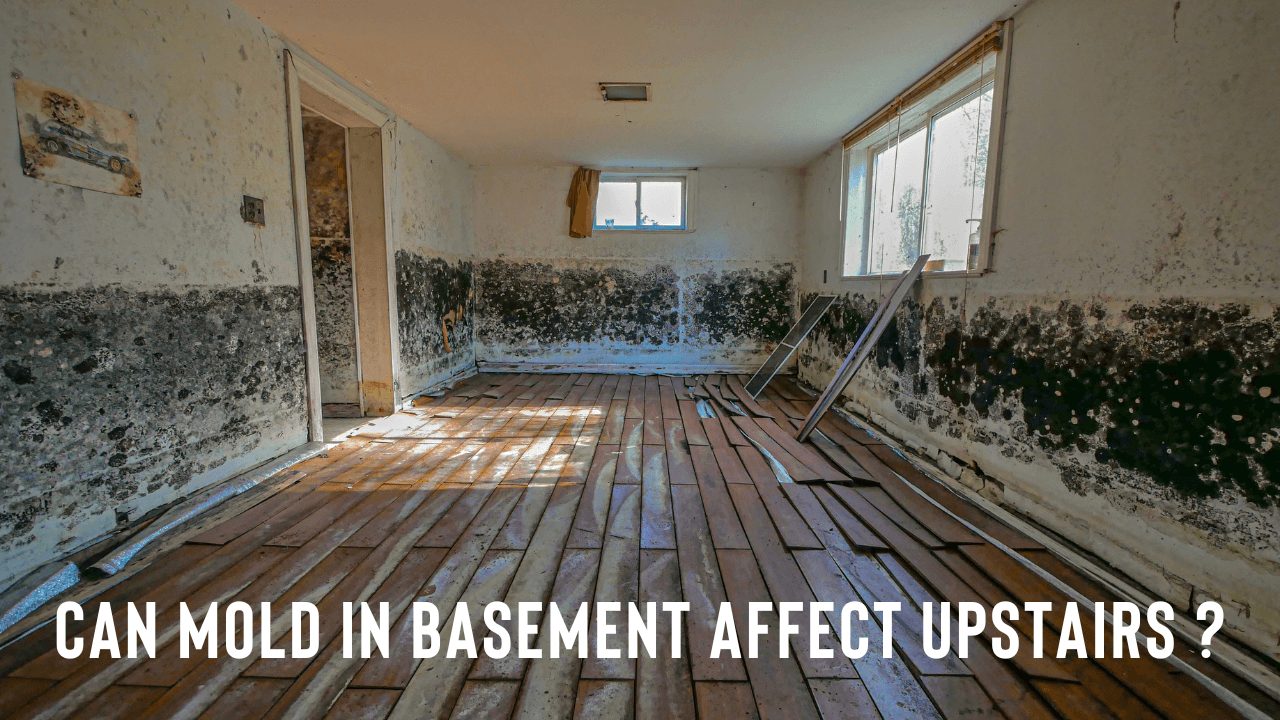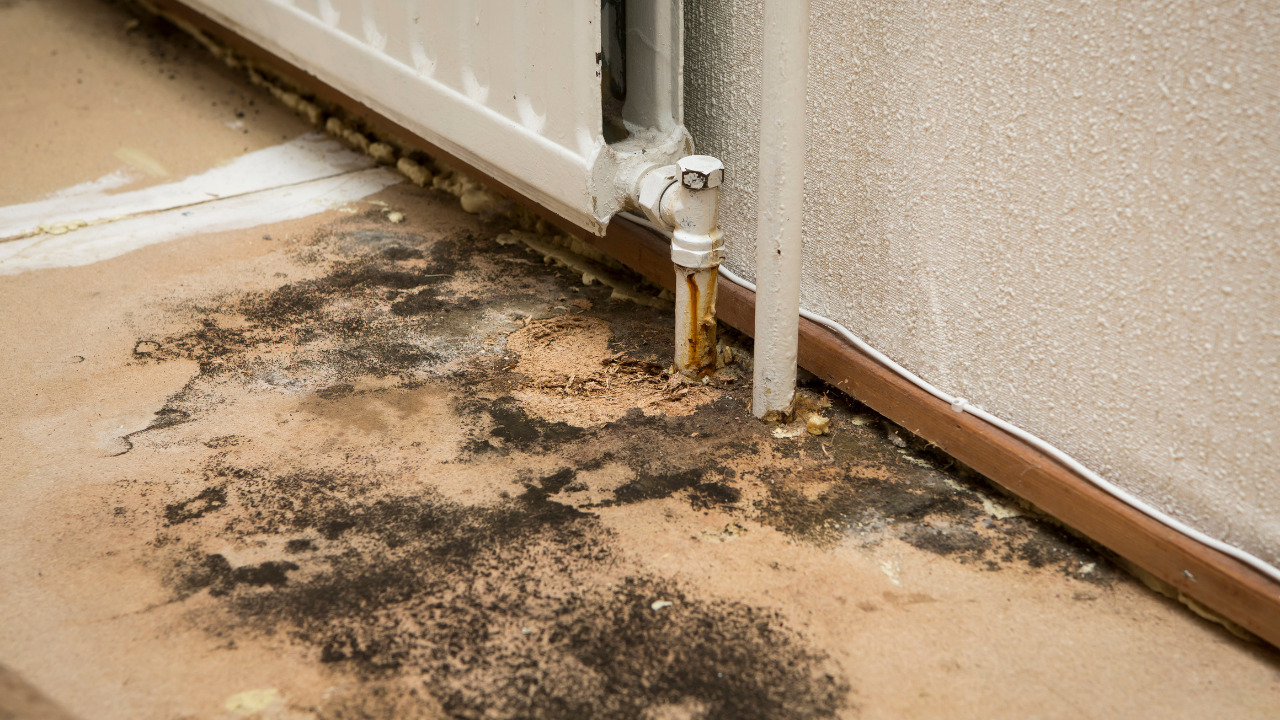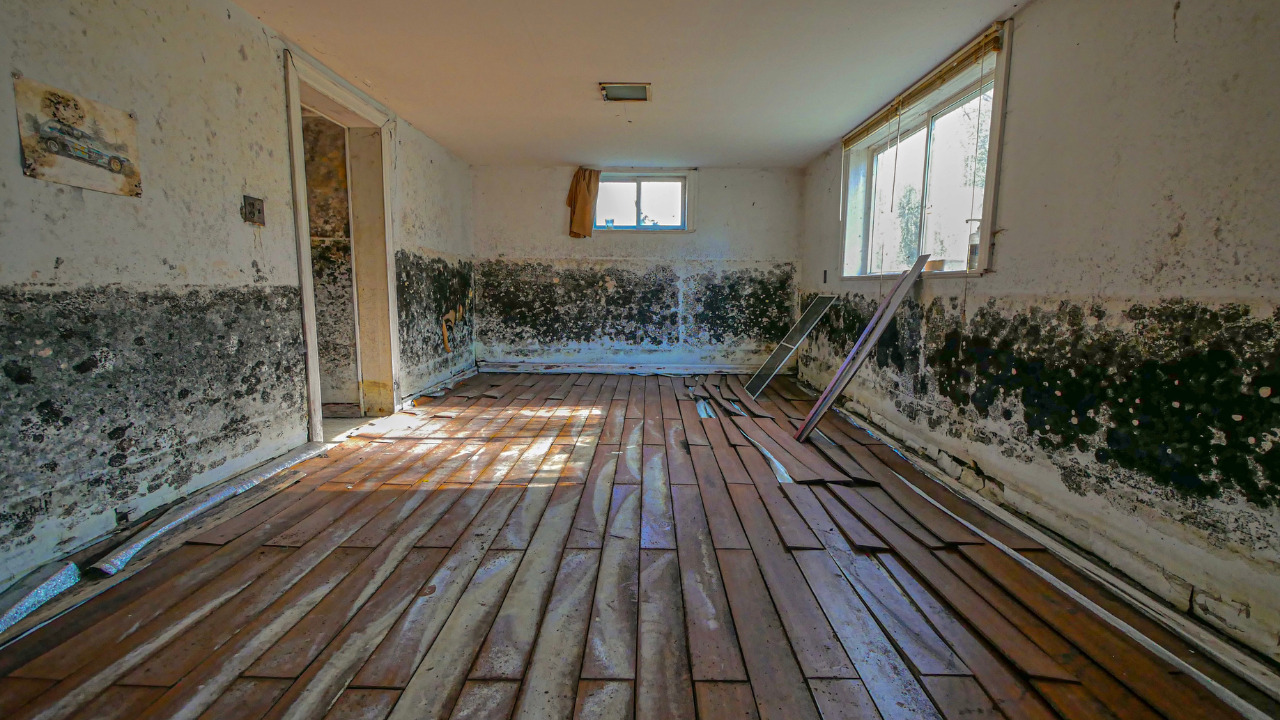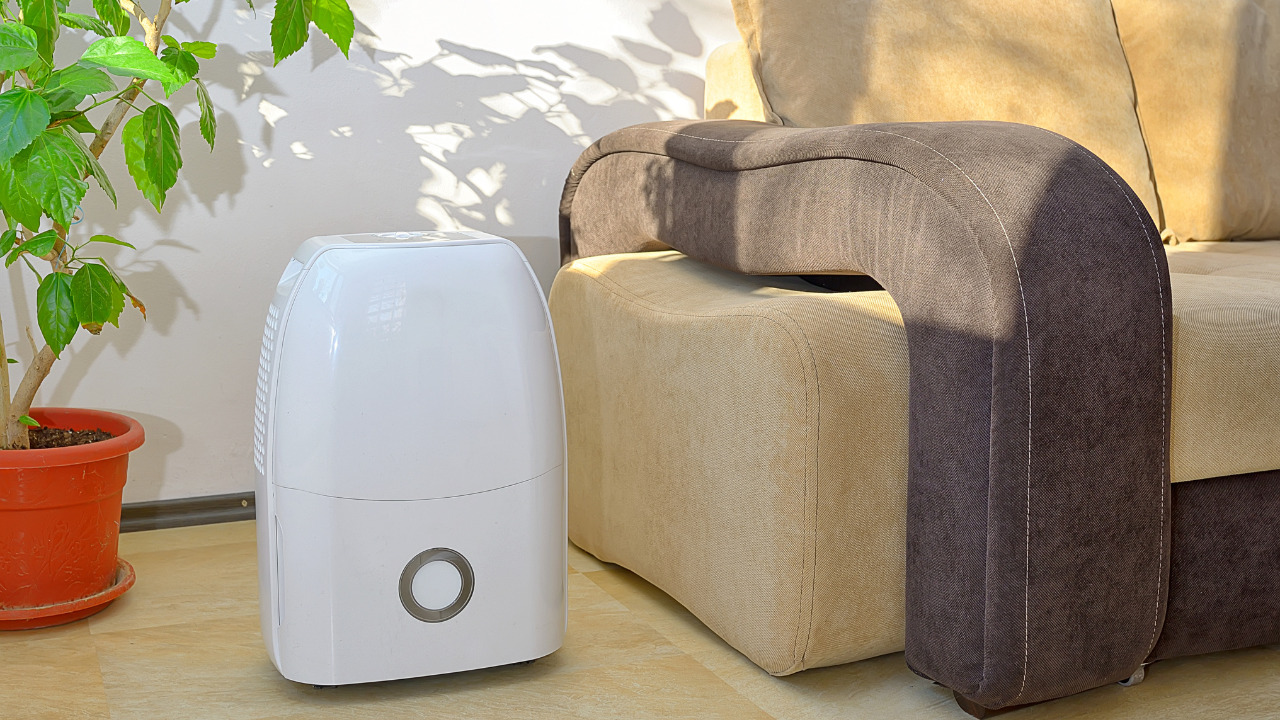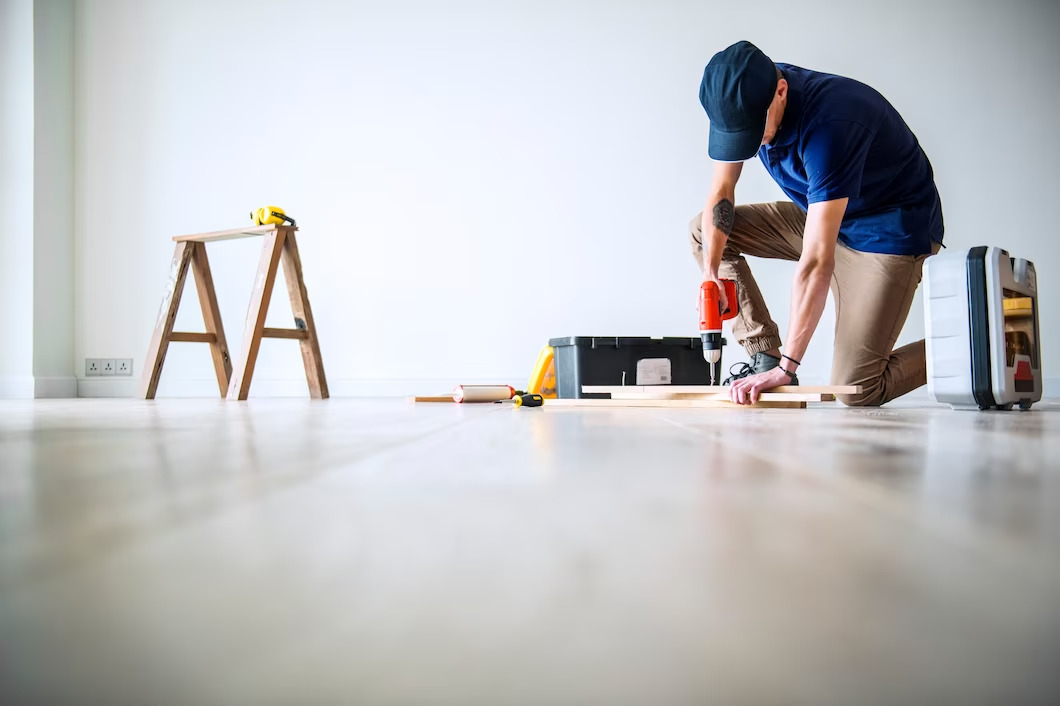Is your basement filling up with mildew and odd odors? If you spot this odor, you most likely have a moisture issue in your basement, which could be causing mold to grow. Of course, the mold in your basement can contaminate your upstairs air.
Even if the air circulation system is on, mold spores will flow through the air and find their way upstairs.
Some people feel that the remedy is to keep the cellar door shut, which traps the wet air that creates mold. When you open the basement door, a substantial portion of the damp air carrying mold spores enters the main floor. It would help if you prevented those spores from spreading throughout your home to keep yourself and your family safe.
Don’t worry; Mold can form in a basement, cellar, or crawl space, even in homes with excellent drainage and cleaning systems. Unfortunately, mold is more prone to dark, damp areas where it can quickly distribute spores.
Once mold forms, it can quickly spread to surrounding areas, eventually causing it to grow in the basement ceiling and throughout the house.
Table of Contents
The Movement Pattern Of Mold From Basement To Upstairs
Mold demands three specific environmental variables to thrive and proliferate. The three requirements are a humid or moist atmosphere, sufficient nutrients to feed on, and material or surface to grow on.
Mold can quickly spread from your basement via tiny, lightweight mold spores if the upper portion of your house provides such an environment. Mold reproduces and spreads mainly by spores, which fly quickly through the air.
Moisture issues can manifest themselves in several ways. They can cause by a flood and a leaking pipe.
As a result, the best and most reliable way to keep a mold problem from spreading throughout your house is to treat any moisture or dampness concerns as soon as they emerge, as well as to maintain a dry, well-ventilated atmosphere that is mold-resistant.
Mold Can Spread Throughout The House
Mold is a fungus that generates tiny spores you can’t see or find out in practically every room of your house and the environment. The spores are usually latent, but when there is much moisture in your home, especially in the basement, they begin to grow.
The spores will spread and proliferate over time on walls, ceilings, under vanities, and anywhere else where there is much dampness. They are not apparent to the naked eye as they grow and establish colonies.
Mold spores will go unseen until you notice them or notice a musty odor in your home, usually originating from the basement. They can impact those with allergies during this development period; if you have asthma, your breathing will be more affected.
You must take action immediately in the severe spread and growth of mold. Otherwise, you have to suffer from the worst conditions.
A Few Considerations To Control The Mold Spread
There are various strategies to prevent mold spores from spreading in your home, most of which have to do with moisture and humidity levels. Follow the mentioned-below recommendations or instructions to control the mold spread efficiently:
- Make sure to fix all the drainage or water supply areas in your home. So, you can save the pipes, sinks and other water supply sources from leakage.
- Clean the home professionally or adequately in the case of floor or heavy rain. Make sure to cover all the areas that are highly exposed to water while cleaning the home yourself or with the help of professionals.
- Add the vents and windows to areas more prone to moisture and dampness.
- Use the houses’ high-end dehumidifiers or ventilation systems to keep the humidity level minimum.
- Don’t add the rugs or carpets in higher humidity or moisture levels in specific areas such as the kitchen and basement.
Symptoms Of Mold In Basement
Mold indoors rarely causes issues. However, the problem starts when mold locates a suitable, damp surface to establish a foothold. Mold will start to spread here. Health issues will also start to arise as a result of this. Allergens are produced by mold growth. Simply said, allergens are things that make people respond allergically.
Additionally, they may irritate you physically in several ways. Mold can cause an allergic reaction if you contact it or breathe it in. People who are allergic to mold often have problems with it. These people might experience allergic reactions to mold.
Effects Of Basement Mold On The Health
The health dangers of basement mold are similar to those associated with mold growth in other rooms and sections of your home. Mold in the home may not cause any noticeable reactions in some people.
Besides this, mold can cause severe and devastating symptoms in certain people. Children, the elderly, those with mold allergies, and asthmatics are the people who are most in danger.
You should consult your doctor if you’re experiencing any allergies to your skin because of mold. They will assist you if you’re at risk from mold spore exposure in your house.
Steps To Control Mold In Basement And Upstairs
Add A Proper Ventilation System In The Basement
Sealing your basement is one of the most crucial things you can do to flood-proof your house. Your home will be protected from moisture damage, flood protection will be improved, and your basement will assist in keeping water out.
You can use a waterproofing membrane or sealant to seal your basement. Additionally, re-caulk the windows, doors, and hatchways in the basement. Keep in mind that water will always choose the route with the least resistance and will seek out any openings.
Fix Cracks And Holes
Mold spores can flourish in the ideal habitat, created when moisture seeps through wall crevices. Additionally, mold can weaken your home’s walls and harm the insulation, which might result in structural damage. Getting any cracks in your basement walls repaired as soon as you find them is crucial.
A qualified waterproofing contractor can correctly patch and seal the cracks, stopping moisture from leaking.
Check HVAC System Tim To Time
One of the main routes through which mold can enter your house is your HVAC system. Make sure to schedule routine maintenance for your central air conditioner if you have one. Every few months, the filters should be changed, and the appliance should be checked for cracks and leaks.
Make sure to have the ductwork cleaned and examined every few years if your heating system uses forced air. By following these easy actions, you can protect your family’s health and stop mold growth in your house.
Add Dehumidifiers To The Basement
One of the key elements that promote mold growth is high humidity levels. You may lessen the likelihood of mold formation in your basement by using a dehumidifier to keep the air dry. Dehumidifiers come in various sizes and can be mounted on the ceiling or set on the floor. Verify the humidity levels and choose a size that fits the area.
Regular Maintenance And Follow-Up To Avoid The Mold Spread
The first step is to clear away any visible mold-infested objects or contents. Secondly, dry everything out, and a dehumidifier, which removes moisture from the air, is an excellent tool for this.
Use fans sparingly until the cleanup is finished. If you’re looking for a dehumidifier, buy it at affordable rates from any home improvement or maintenance store.
Moreover, turn on any bathroom or kitchen exhaust fans in your basement to expel the wet air. Make sure you’re dressed safely and wearing gloves and masks during the cleanup. Separate any objects that need to be washed immediately to prevent mold spores from spreading.
If there is visible mold on very porous goods such as ceiling tiles, paper and cardboard, replace the tiles. You can clean any moldy items or walls using a vacuum or washing them.
If the mold is still growing in maintained or highly cleaned areas, hiring a professional is better. Always hire highly experienced and trained cleaning staff to eliminate mold spread efficiently.
Frequently Asked Questions?
Does mold in the basement affect your upstairs?
Of course, yes! Mold spores spread really fast. So, it can grow through your basement’s walls, cracks, and holes in your upstairs area or HVAC system.
Do I need to hire a professional cleaning team to remove mold in the basement?
It’s critical to get in touch with a reputable mold removal firm if you suspect that you have mold in your basement or that the mold has moved upstairs. They’ll be able to examine your house, locate the issue, and create a strategy to eliminate the mold and stop it from returning.
Final Words
In short, the presence of mold spores in the basement is a common thing. But it may lead to more issues and health risks if not treated on time. It’s up to you to hire professionals for the appropriate basement cleaning or do it yourself.
However, every mold situation in the basement is controllable with inspection and the proper treatment immediately.

